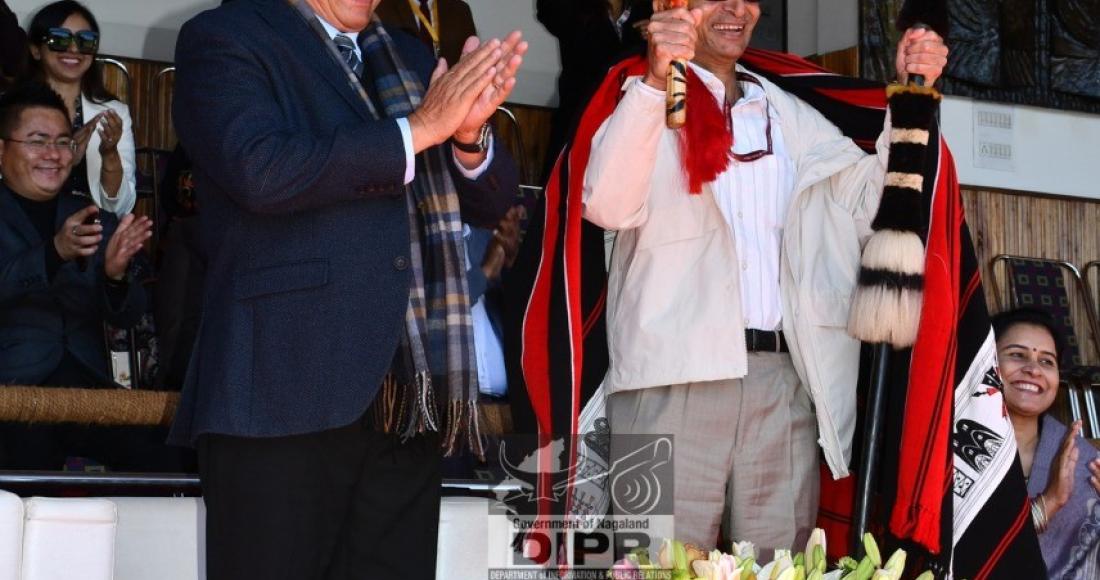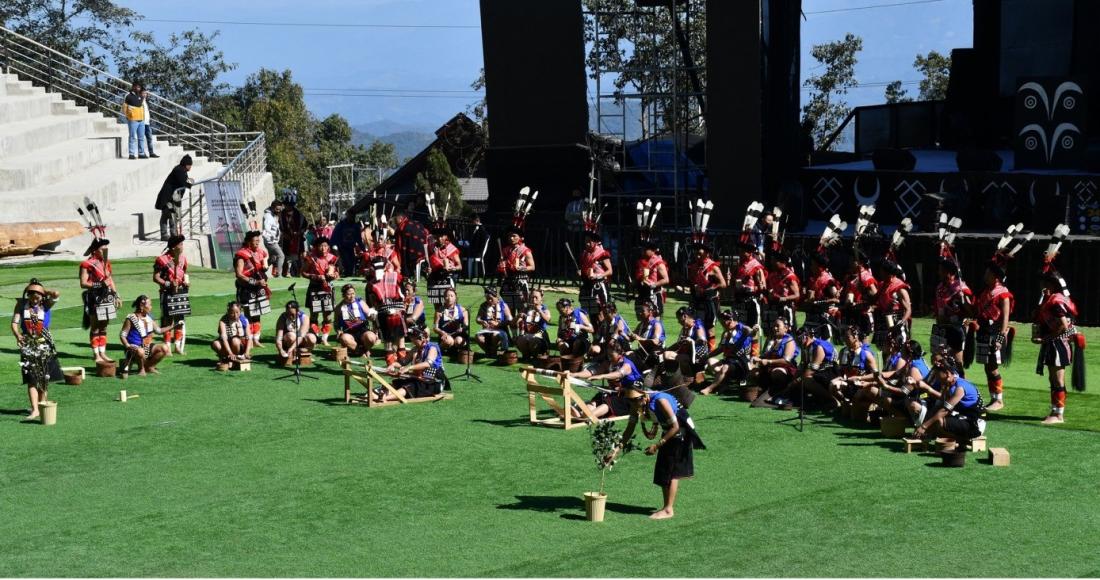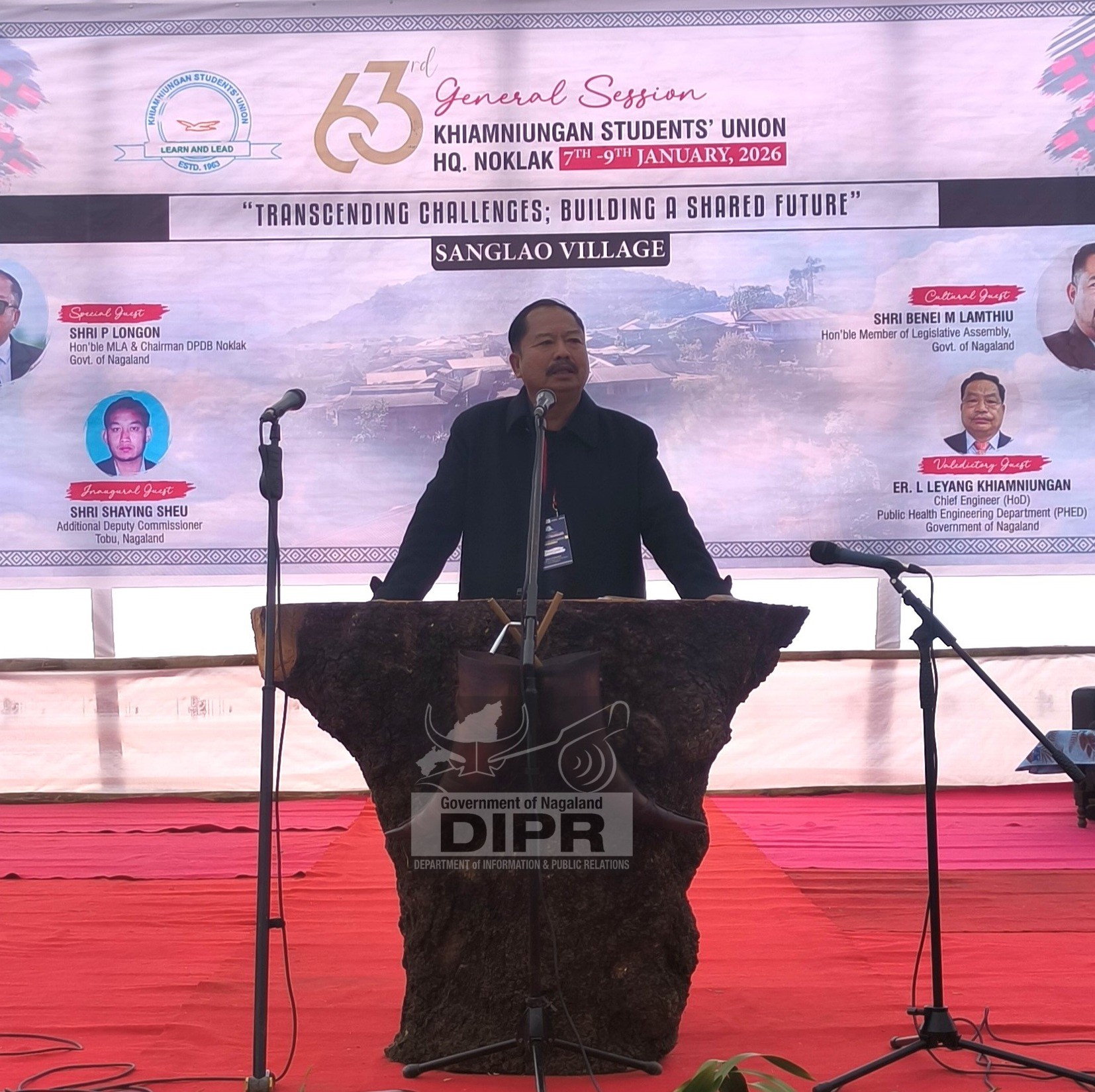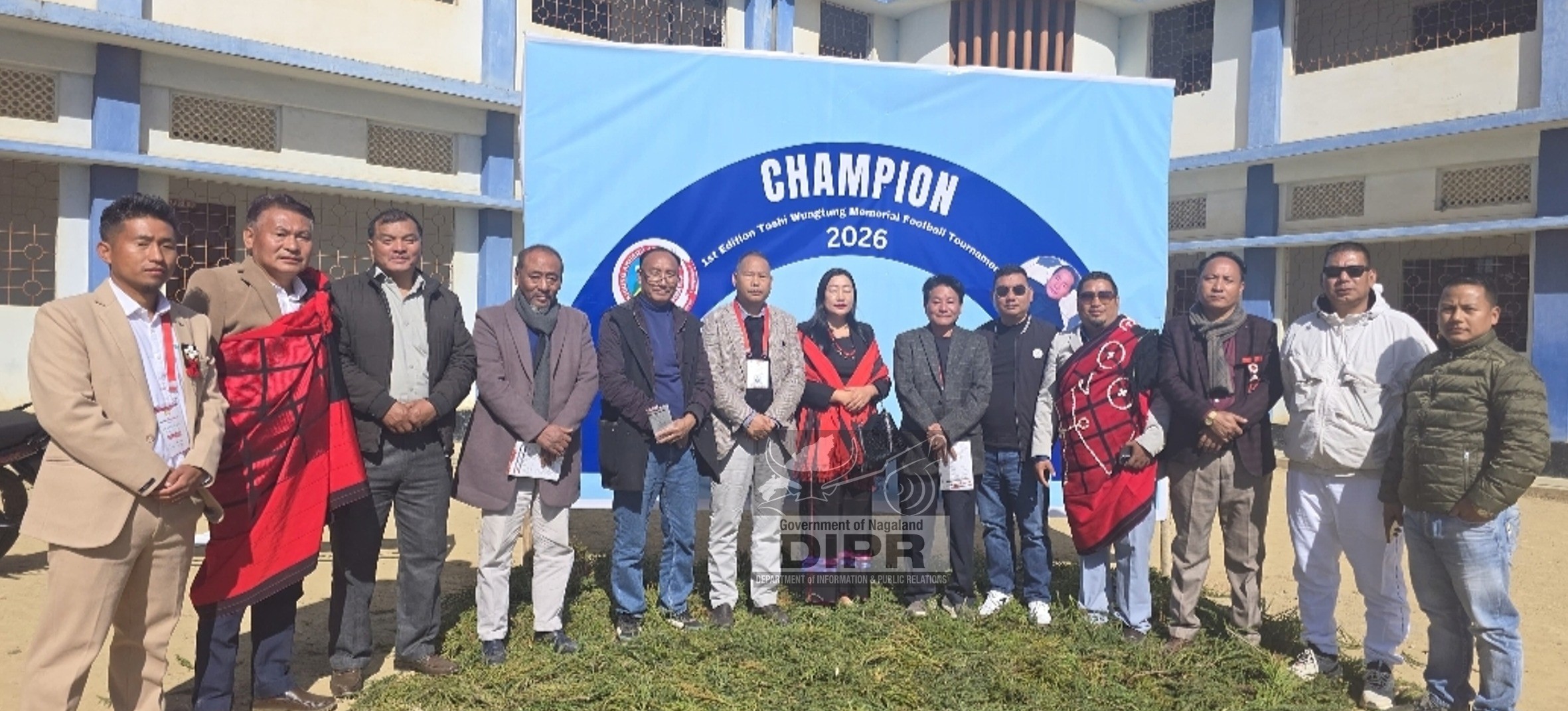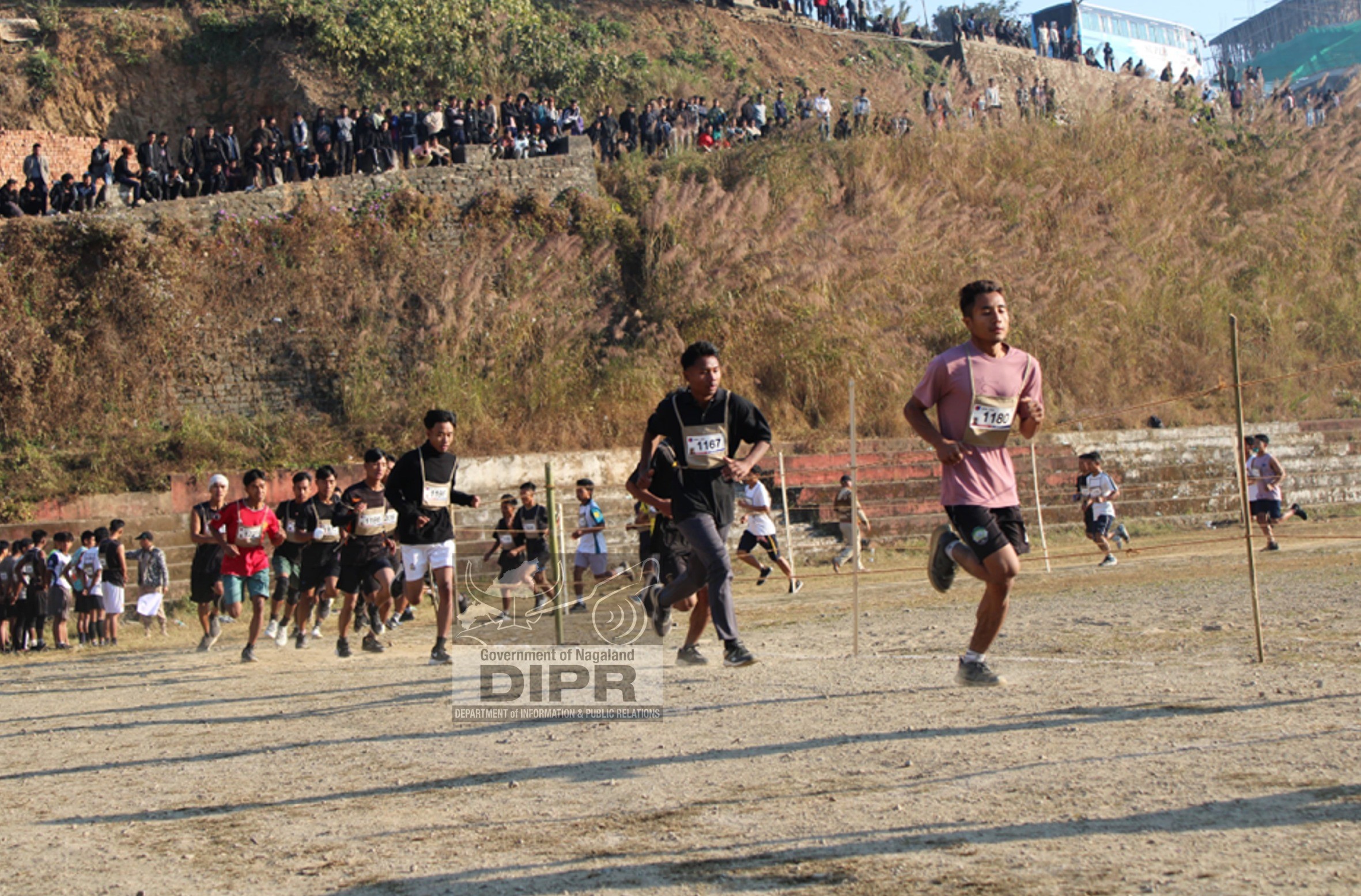The 25th anniversary celebrations of the Hornbill Festival continued on Day 4 under the theme "Cultural Connect," with an impressive array of traditional performances by various tribes of Nagaland. The morning session was hosted by Deputy Chief Minister T.R. Zeliang, alongside Advisor for Tribal Affairs and Elections H. Tovihoto Ayemi, and Prasielie Pienyu, Chairman of the Nagaland Handloom and Handicrafts Development Corporation (NHHDC). The General Manager of NF Railways, A.K. Chowdhury attended the event as the guest of honour.
The cultural showcase began with a performance by the Tikhir cultural troupe, who presented Thülu Tong Nü Koyatü Nong Nong Khin, a men’s folk song traditionally sung while returning from the fields. The song, performed as a medium of expression when verbal communication is restricted, captivated the audience with its unique narrative style.
The Sumi tribe followed with Akhe Shikeu/Aqhe Kishi, a vigorous war dance performed exclusively by male villagers to demonstrate their strength and warrior skills. The powerful, synchronised movements conveyed the tribe’s martial spirit and camaraderie.
The Lotha cultural troupe marked the festival’s silver jubilee with Rhejung Tokhu Jubilee Nsika, a celebratory dance. The Rengma tribe presented Akha Khi Kemvü, a song sung during the spinning of cotton threads, while the Pochury troupe performed Tsupongho Tsutsongho Chonwi, a victory dance historically linked to headhunting traditions.
The Chakesang troupe delivered a spirited war dance called Khrokechü, symbolising courage and fearlessness, with declarations of being the village’s protector. The Konyak tribe softened the tone with Nao Aepu, a lullaby sung by women to praise and bless infants.
Women performers from the Sangtam tribe showcased Aptarü Nyichiba, a celebratory dance performed in the homes of village chiefs, who, in turn, offer rice and pork as tokens of gratitude. The morning session concluded with the Kachari cultural troupe performing Barishing Ha Khim Gaiba, a post-harvest folk dance that honours esteemed guests.
The event highlighted the rich cultural heritage of Nagaland’s tribes, fostering a deeper appreciation for their traditions and unity through diversity.
The co-host for the afternoon session was Advisor, Minority affairs & Sericulture, Imkongmar and was accompanied by Minister of Rural Development and SIRD, Metsubo Jamir.
The following tribes performed their traditional dances and folk songs during the cultural event.
Phom cultural troupe performed 'Cheihdungla', an indigenous song and dance where a Mithun's horn of different sizes are aligned and played skillfully to generate different musical tunes creating a divine sound.
Angami cultural troupe presented a folk song called Chaze Pfhe, it is a traditional folk song sung by the Angami women folk while spinning cotton yarn which is used to make traditional shawls, mekhalas, bags etc from it.
Ao cultural troupe entertained the gathering with a mesmerizing warrior dance performance, where the dancers entered the stage with chants to celebrate with the viewers. The chants and dances are accompanied by the best of the drums with colorful costumes.
The Chang cultural troupe presented Theai, a commemorative performance by the female folks where they sing songs while weaving and spinning yarns in attuned harmony.
AndingO'ka is a traditional game of the Garo tribe, performed by the Garo cultural troupe where two young lads sit facing each other and hold a bamboo baton and the contestants try to pull the baton towards each other. The one who manages to pull the baton away from the opponent wins the game.
Khiamniungan cultural troupe demonstrated Oum Kie Ao, a traditional way of belt making.The Kuki cultural troupe entertained the crowd with a mixture of different folk dances called 'Hal Ngai Lam' which means dance of healing and rejuvenation.
Yimkhiung cultural troupe presented a folk song called Khohto Khun, this song is about producing a blissful melody and talks about the great Barbet which beautifully chirps in the wild forest.
The Zeliang cultural troupe was the final performance of the day where they demonstrated Kagiuna Lin, a Honey Bee Dance. This dance is performed during an auspicious occasion where the youth tries to enchant their lovers and win their hearts spending time together in a romantic spirit.
(Takumpula Longkumer IA and Samuel, IA)


